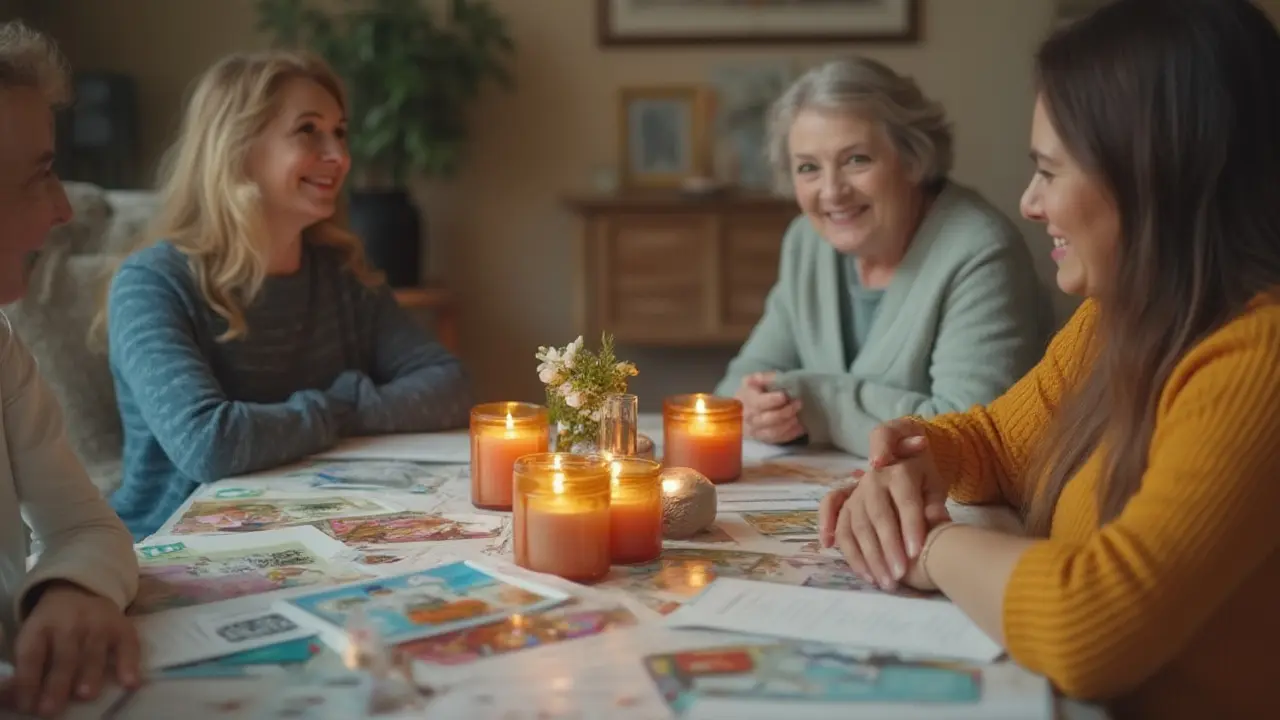Ever hear a couple whisper about bringing a third into the bedroom, or maybe even more? Group sex isn’t some new underground trend—it’s actually woven into modern relationship culture in surprising ways. Research from Kinsey Institute shows that almost one in five couples has either had or seriously considered group sex at some point in their relationship. There’s real curiosity, excitement, and sometimes anxiety wrapped up in the idea. Why do couples take the plunge? Sometimes it’s about pure pleasure, spicing up routine, or even strengthening a partnership through deeper trust. This guide peels back the curtain, laying out facts you can trust and tips that actually work, so you make smart choices without the awkward guesswork.
Understanding the Appeal and Psychology
The buzz around group sex isn’t just clickbait or hearsay. A 2024 survey from Lovehoney, a leading intimacy brand, reported that nearly 28% of long-term couples wanted to try swinging or a group setting at least once. Why? For some, it’s about shaking up sexual monotony. Let’s face it, routine can sneak into even the happiest bedroom. Bringing in others—whether it’s another couple, a third, or more—presents a taboo-breaking hurdle. The emotional rollercoaster often swings between excitement and nerves.
Psychologists say the appeal isn’t only physical. Dr. Justin Lehmiller, an intimacy researcher, points to the thrill of shared taboo. Doing something ‘forbidden’ as a team turns into a trust-building, even bonding, activity. It’s not always about chasing the next great orgasm—the sense of a shared secret and teamwork often marks a stronger post-experience bond, especially when everyone communicates clearly about boundaries and outcomes.
There’s another side: for some, watching their partner with someone else can actually deepen desire, a phenomenon called “compersion.” This doesn’t erase jealousy, but it does show that human attraction is a tricky, layered thing. Still, like any adventure, not every couple is wired the same way. Some folks leap in feet-first; others try a fantasy-only approach, using dirty talk or role-play to explore instead. What’s key is how open both partners are in discussing their curiosity and letting each other be honest about fears or hesitations.
According to a National Survey of Sexual Health and Behavior conducted in 2023, about 12% of American adults had experienced group sex by age 35. That number is highest among couples in tech-friendly urban areas (think big cities with thriving swinging scenes and open relationship forums). Still, most couples say the emotional high comes from feeling safe, respected, and in control of the encounter, more than any specific sexual move. The real draw? Sharing vulnerability, pushing comfort zones, and writing your own version of normal.
Communication, Consent, and Ground Rules
Jumping right in without talking can torpedo a relationship—fast. Honest conversation lays the whole foundation here. Start by naming the fantasy and asking questions: What do you want? What topics are off-limits? Who gets a veto? Leave space for “I’m not sure” or “Can we slow down?” and actually listen. You’re not negotiating a hostage release—it should feel like planning a vacation, where both parties actually want to go.
Now, setting ground rules is more than just ‘don’t kiss’ or ‘don’t touch.’ Get as specific as you can. Do you want to be in the room together at all times, or is splitting up okay? Is video or photo allowed? What about condoms and protection? It might feel unsexy to talk about all this, but it’s exactly what makes the actual experience safe and drama-free. In a poll of swinging couples in the UK published by Channel 4 in 2022, couples reported fewer regrets and stronger trust if they agreed on ground rules ahead of time.
Let’s talk about consent. It’s not a checkbox you tick off once. People sometimes think that if you agree upfront, you waive your right to check in mid-situation. Actually, active, ongoing consent is crucial. Checking in—“Are you still good?” or “Want to take a break?”—makes everyone feel respected, especially if nerves flare up or someone’s not feeling the vibe. Your partner’s comfort is the biggest turn-on, so treat their boundaries as non-negotiable.
Aftercare isn’t just for BDSM. Even after a steamy group session, talking about what went well, what felt weird, and how you feel about each other is part of the process. This isn’t just soft talk; it literally lowers the chances of jealousy hangover and can even turn a potentially awkward debrief into hot pillow talk. A couple study by the Journal of Sex Research in 2021 found that open post-play conversation boosted relationship satisfaction by 17% on average.

Planning the Experience and Safety Tips
Just swiping right on the first eager stranger is the recipe for a disaster story, not a happy memory. Start slow. Research local options—swinger parties, sex-positive meetups, and vetted online communities all have different vibes. Don’t just show up; read their rules, check reviews, ask other members questions. Many established groups require meeting for a coffee first, letting you gauge chemistry and comfort without pressure. Pro tip: the more up-front a group is about boundaries and safety, the more likely you are to have a genuine, respectful experience.
Don’t ignore the basics either. Always use protection—even if everyone claims to be tested. Make sure you know your own sexual health status and ask for recent test results or openly discuss them. A 2023 CDC report still found that condom use in group sex situations was just 42%, a sliding number responsible for rising STI rates. Never feel shy about putting safety front and center—we’re still talking about people you barely know intimately.
Think logistics. Where will it happen? Neutral territory, like a hotel, helps avoid awkwardness or conflicts later on. Safety can mean locking up valuables, setting safe words, or establishing a quick exit strategy if someone feels unsafe or pressured. Individuals and couples alike often agree on a ‘soft stop’ gesture—like a phrase or tap—to pause or leave without drama.
Here’s a quick fact table to sort out what to consider before, during, and after the experience:
| Step | Key Points |
|---|---|
| Before | Test for STIs, discuss boundaries, agree on location, set ground rules, research group options. |
| During | Use protection, check in with partners, respect agreed limits, communicate if uncomfortable. |
| After | Debrief emotionally, share feelings (positive and negative), agree on next steps, schedule STI re-testing if needed. |
Prepping a "go bag" in advance isn’t just for overplanners. Condoms, lubes, clean towels, snacks, water, and breath mints might save the evening. Throw in a playlist that sets the right mood for the group—music drowns out nerves and awkward silences and lets everyone get lost in the moment. Privacy also matters: have a clear phone policy to avoid any accidental pics or overshares. It’s not about secrecy; it’s protecting your comfort level and life outside the bedroom.
Common Challenges, Real-Life Experiences, and Tips for Success
No plan survives first contact, right? Even the best-prepared couples sometimes run into surprises. Maybe jealousy jumps up where you didn’t expect it, or there’s a mismatch in desire between the two of you. Sometimes feelings get weird, or you realize your fantasy didn’t match reality. Here’s the deal—this happens to even the most experienced groups. What separates a happy story from disaster is how you handle the emotional fallout.
A Stanford psychologist specializing in relationship dynamics, Dr. Ariel Foster, found in a 2022 study that couples who viewed missteps as "growing pains" rather than failures reported higher relationship satisfaction after group sex. Sharing a laugh about cringey moments, or admitting you weren't into something, creates resilience instead of regret. In real-life interviews, couples who debriefed the day after (not immediately after sex, but once the dust settled) bounced back from disappointments far easier than couples who tried to pretend all went perfectly.
Support communities—online forums, Reddit groups, or in-person meetups—are goldmines for learning from others’ trial and error. Want actual tips? Here’s what seasoned couples say works:
- Don’t rush. Test the waters first. Even just going to a party as voyeurs (watching but not joining) gives you a sense of the vibe with zero pressure.
- Make ‘checking in’ normal, not awkward. Try casual “How’s this feel for you?” moments; it anchors both of you.
- Keep a private, honest signal for stepping back if something feels off. That private code word is priceless.
- Share positive feedback, not just negative. Not every new thing will be amazing, but pointing out what went well brings you closer.
- Prepare for the emotional side—sometimes the highs are followed by unexpected lows. That’s normal, especially with something so intimate. Take extra care of your partner the next few days.
- Remember, fantasies often look different in reality. That’s okay—it doesn’t mean the fantasy is ruined, just that real life is messier than the imagination.
What about long-term impact? A 2024 meta-analysis in the Archives of Sexual Behavior found that couples who explored group sex—openly and with clear boundaries—had similar or even higher relationship satisfaction than those who didn’t. The difference? Both partners were genuinely on board, and communication before and after the experience was strong. If one person drags the other along, disaster looms. But when both are curious, respectful, and open, group sex can be a way to explore not just bodies, but also the deeper trust and fun that healthy adults crave in long-term relationships.
So, is group sex the magic key for every couple? Absolutely not. But approached with eyes open and rules clear, it’s another tool—the kind you can use to keep things fresh, adventurous, and deeply honest. Who knows? The next great adventure for your relationship might just start with a simple, honest question: “What if we tried this together?”








